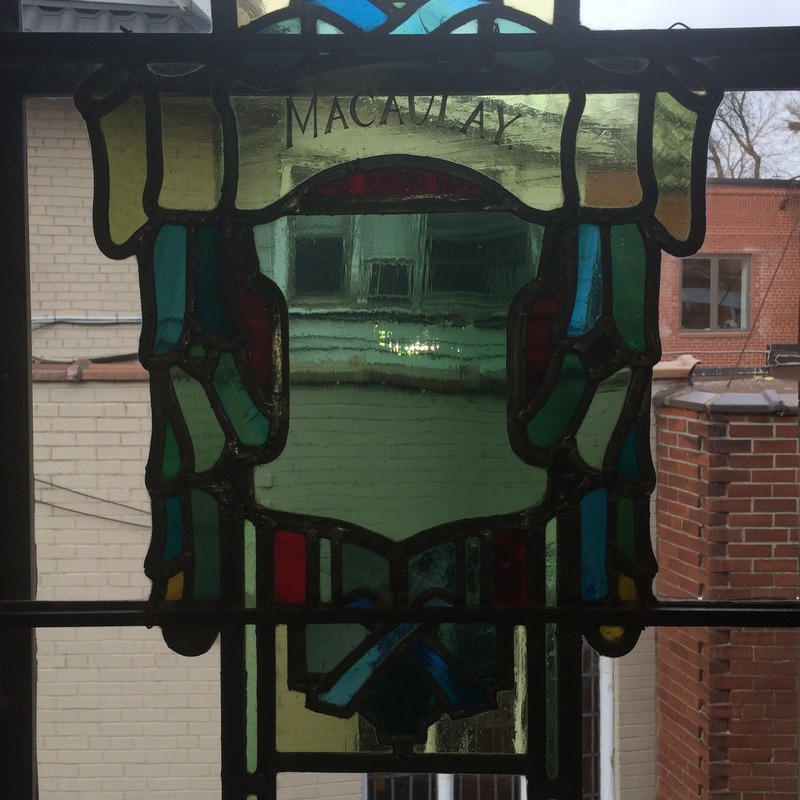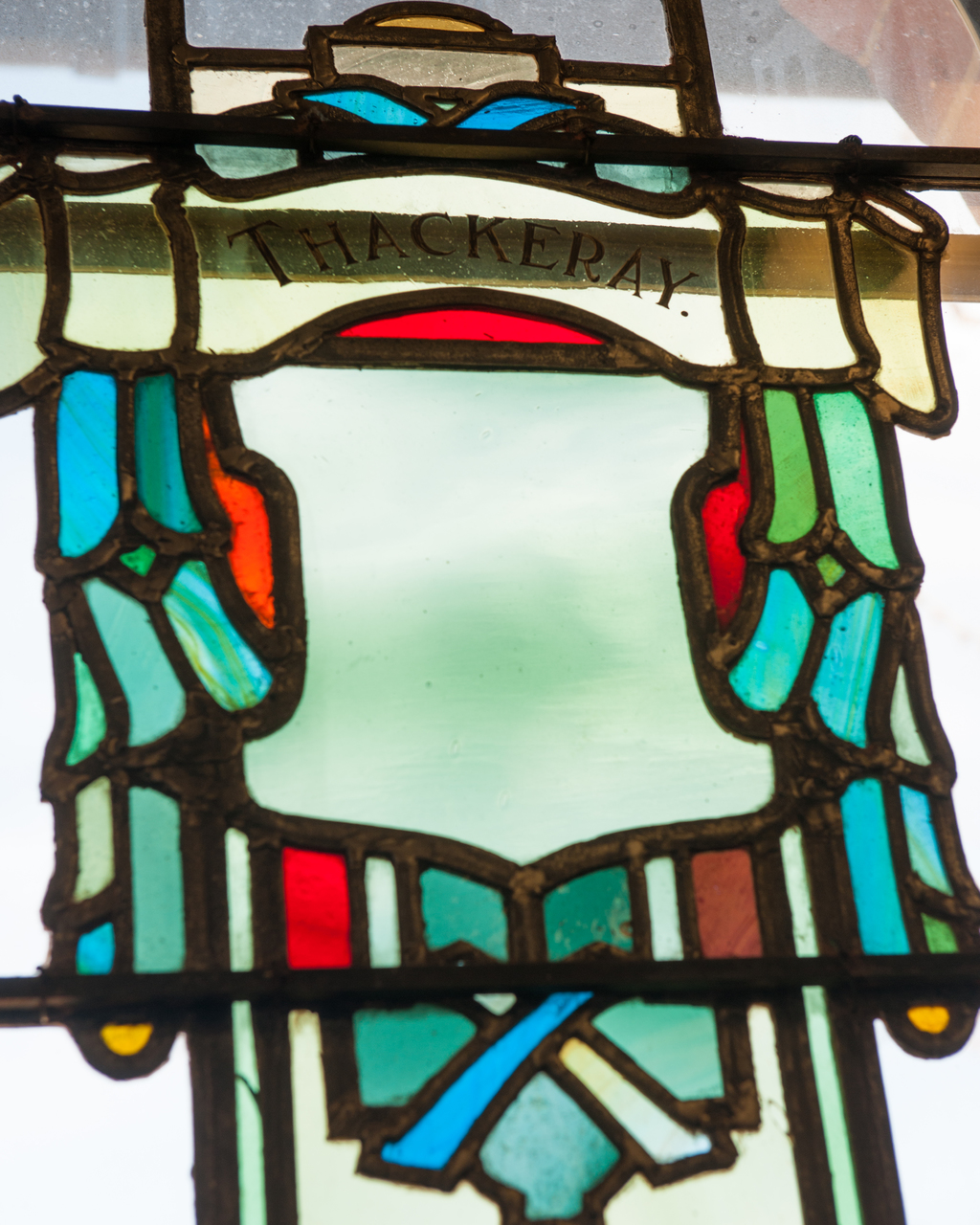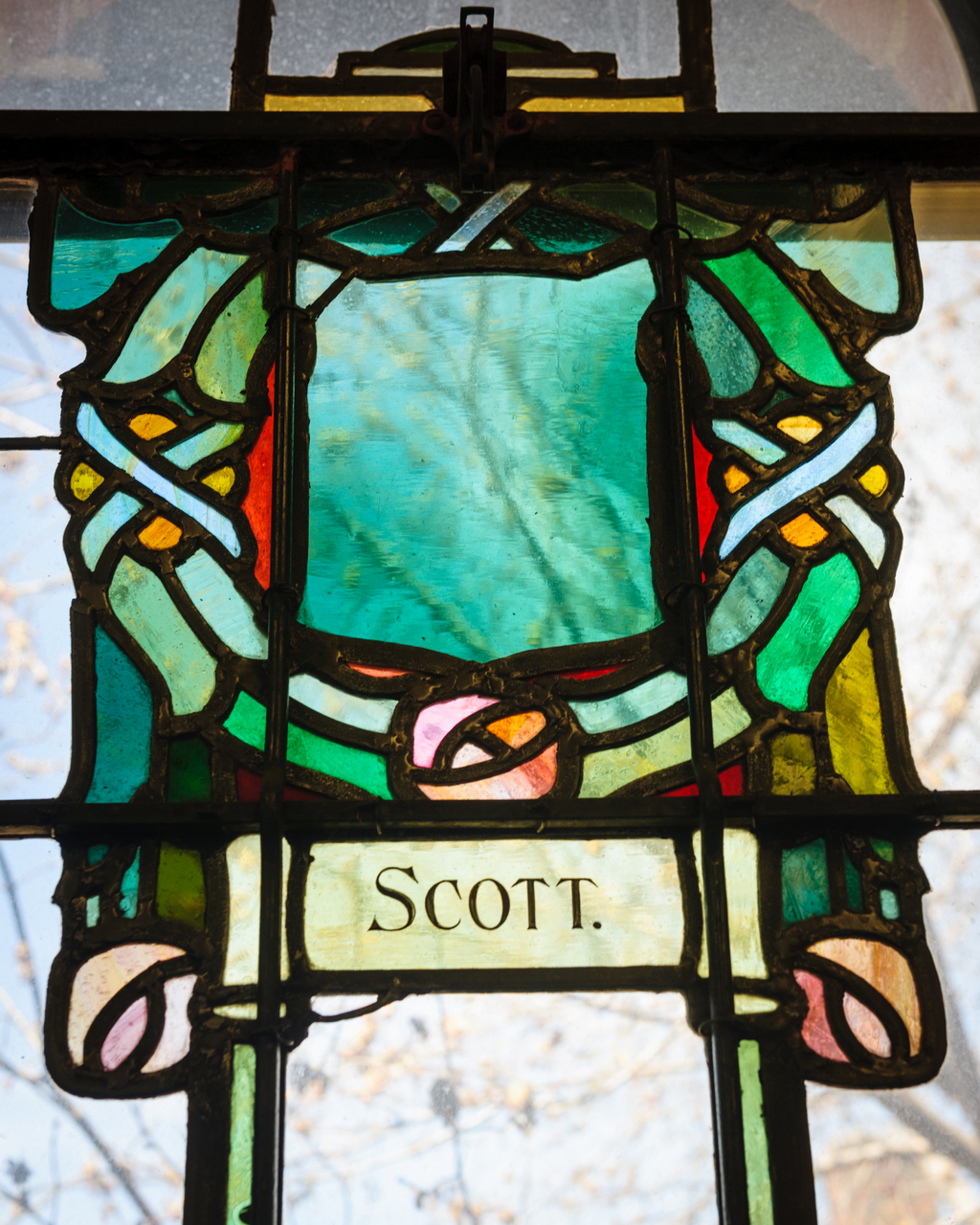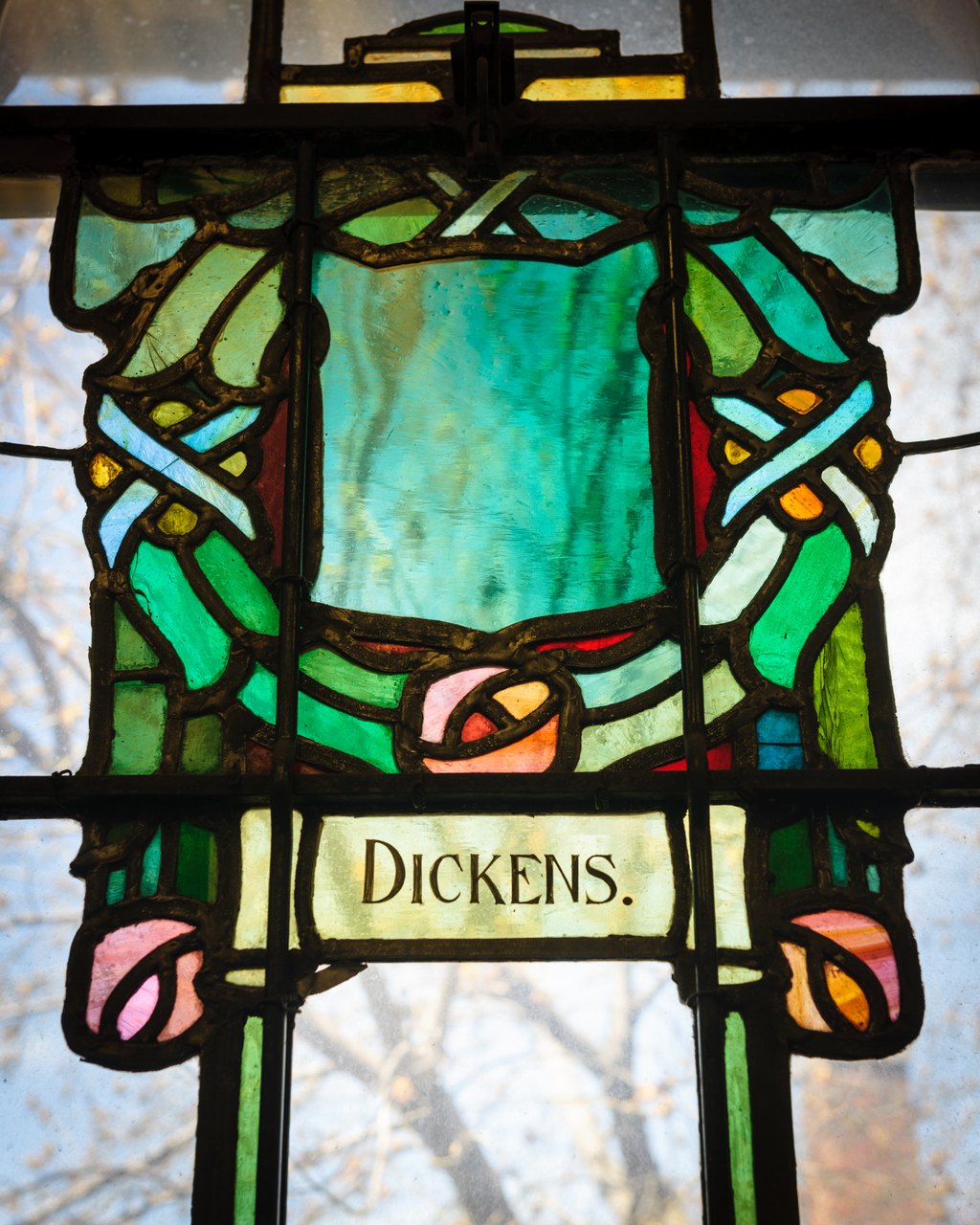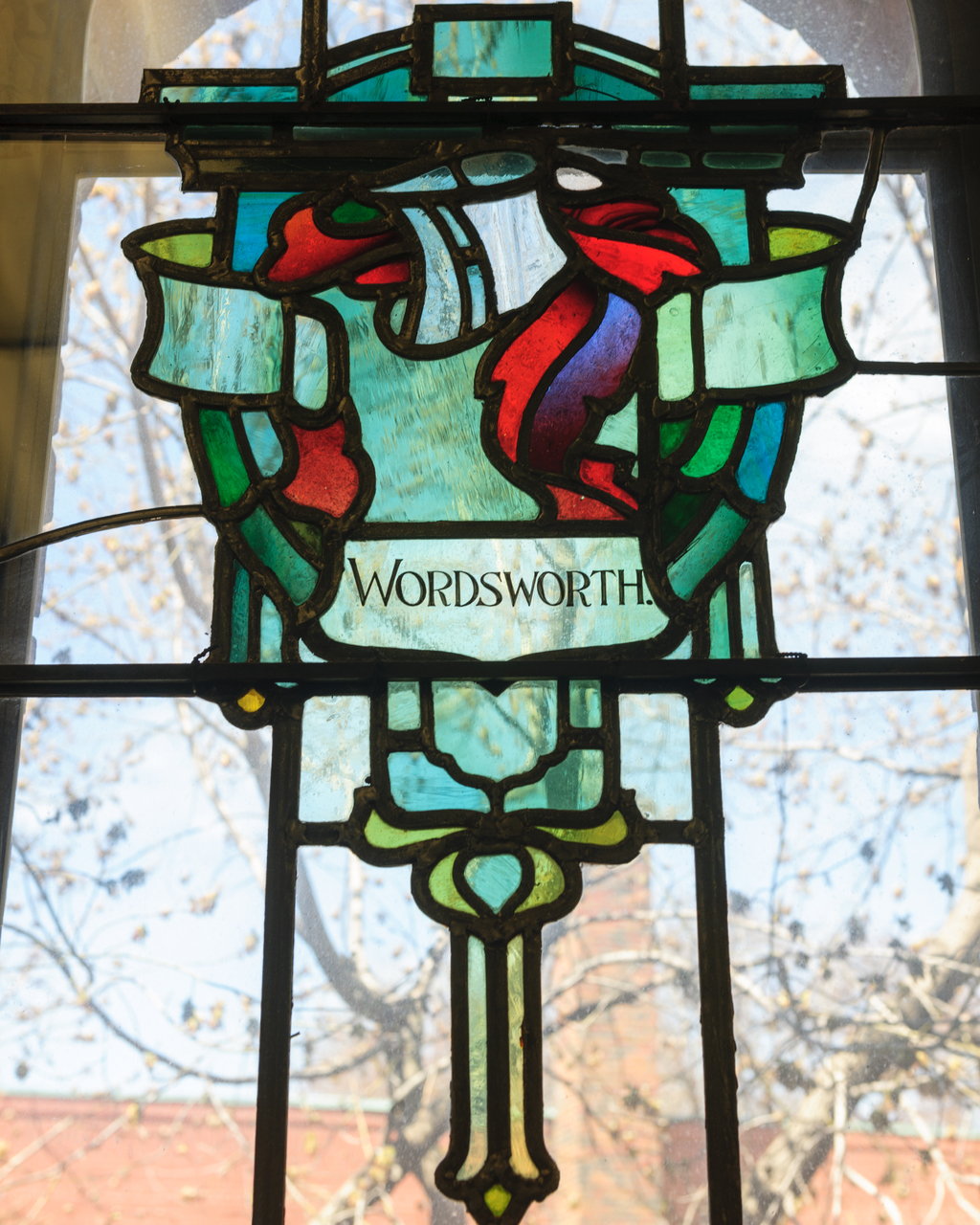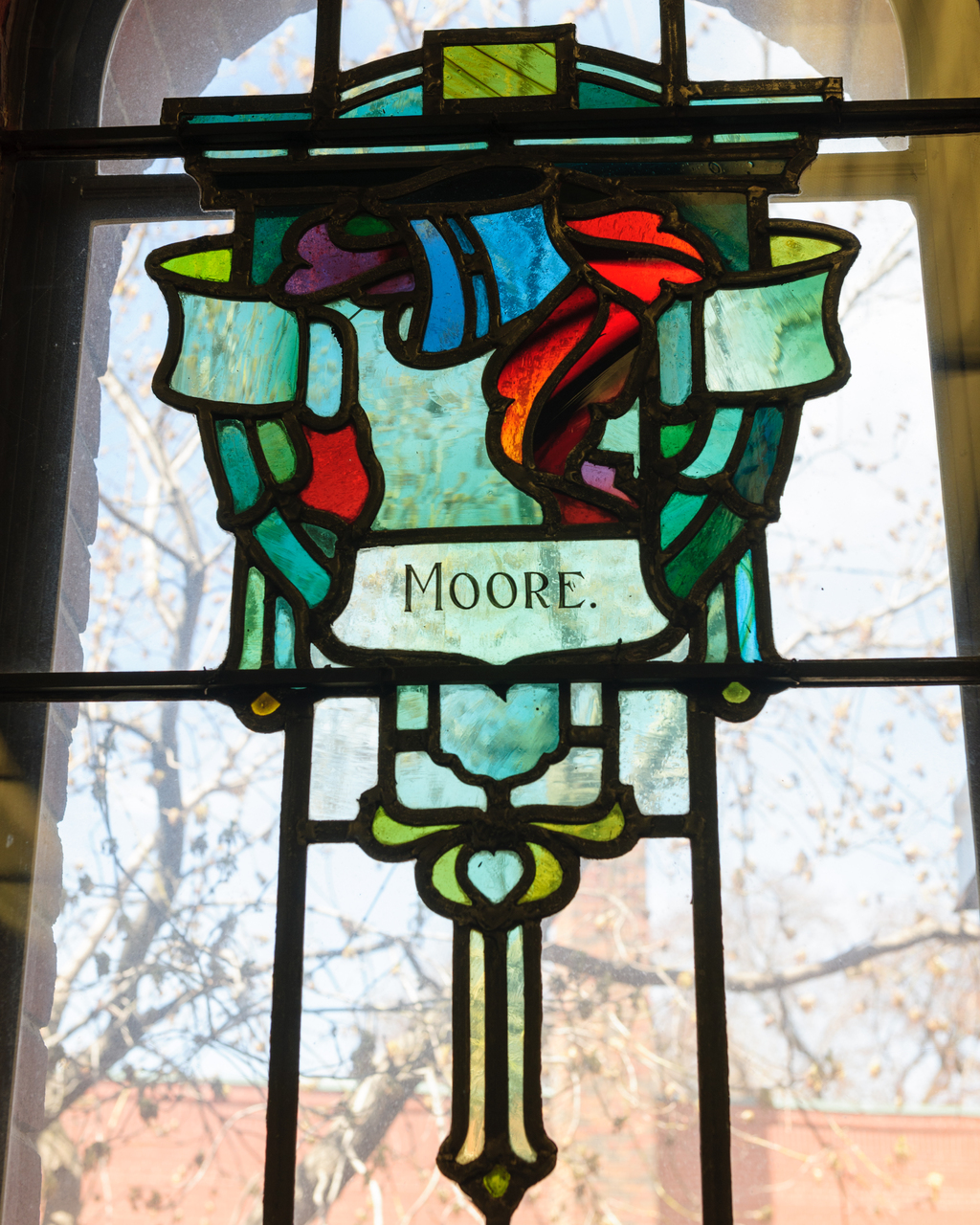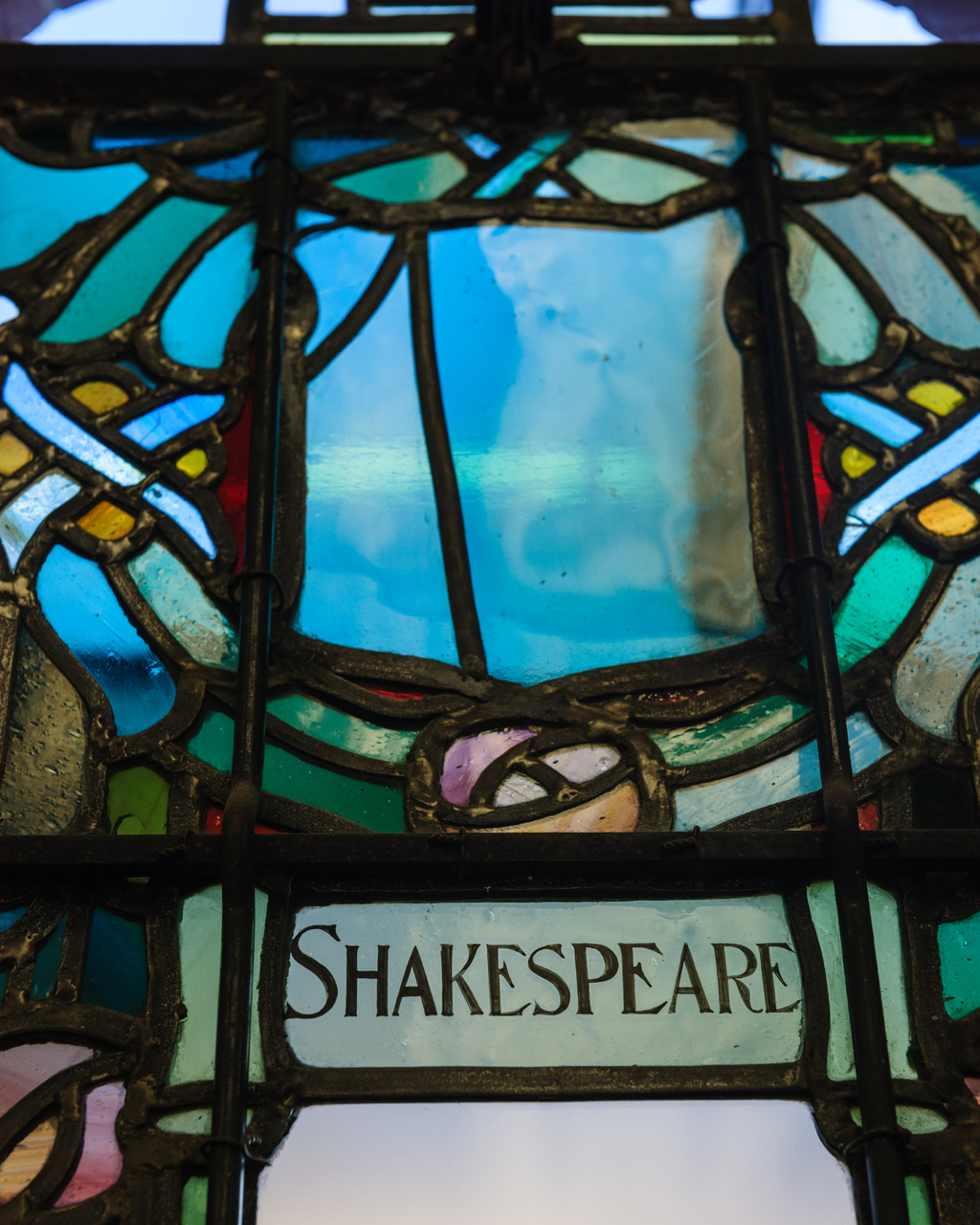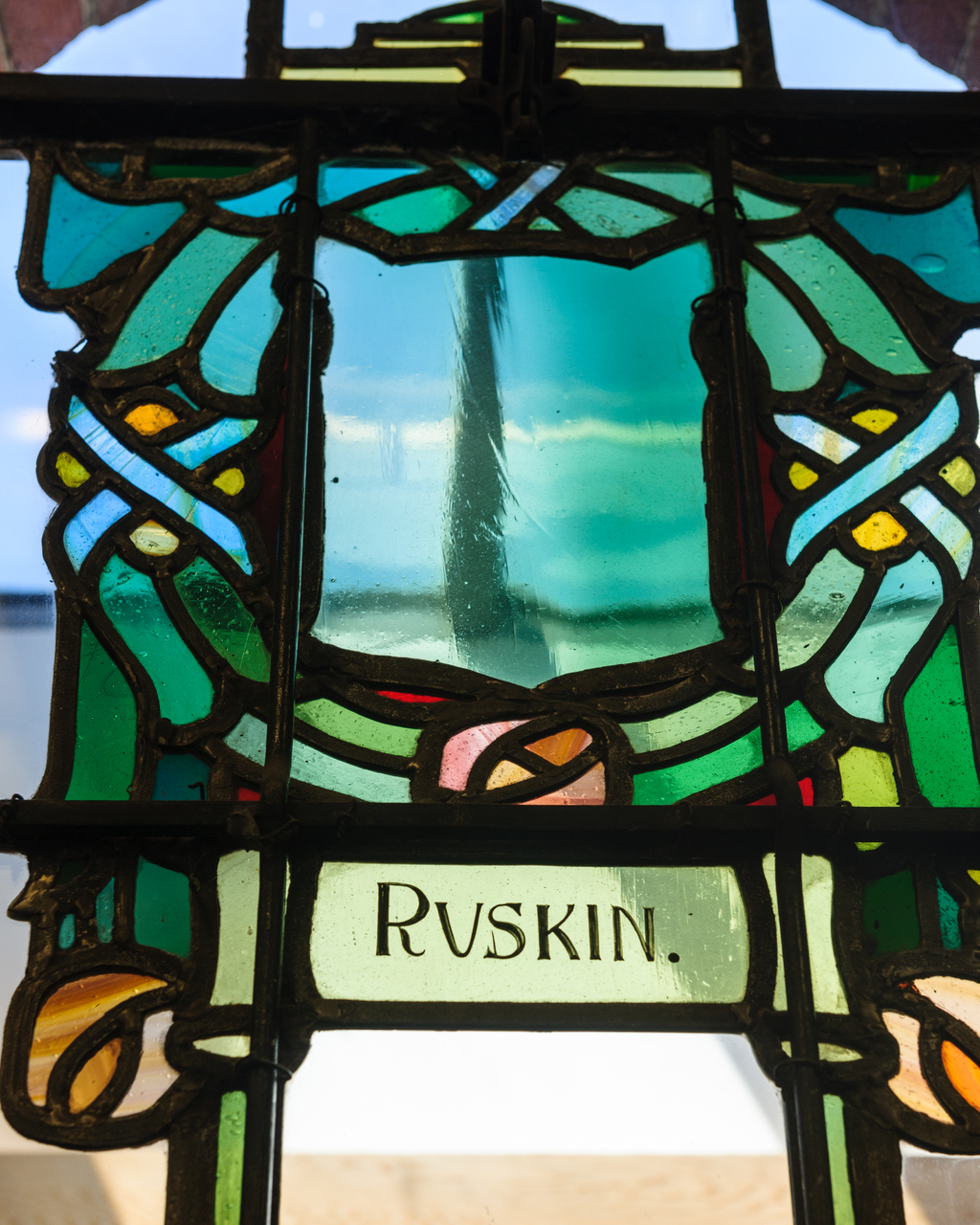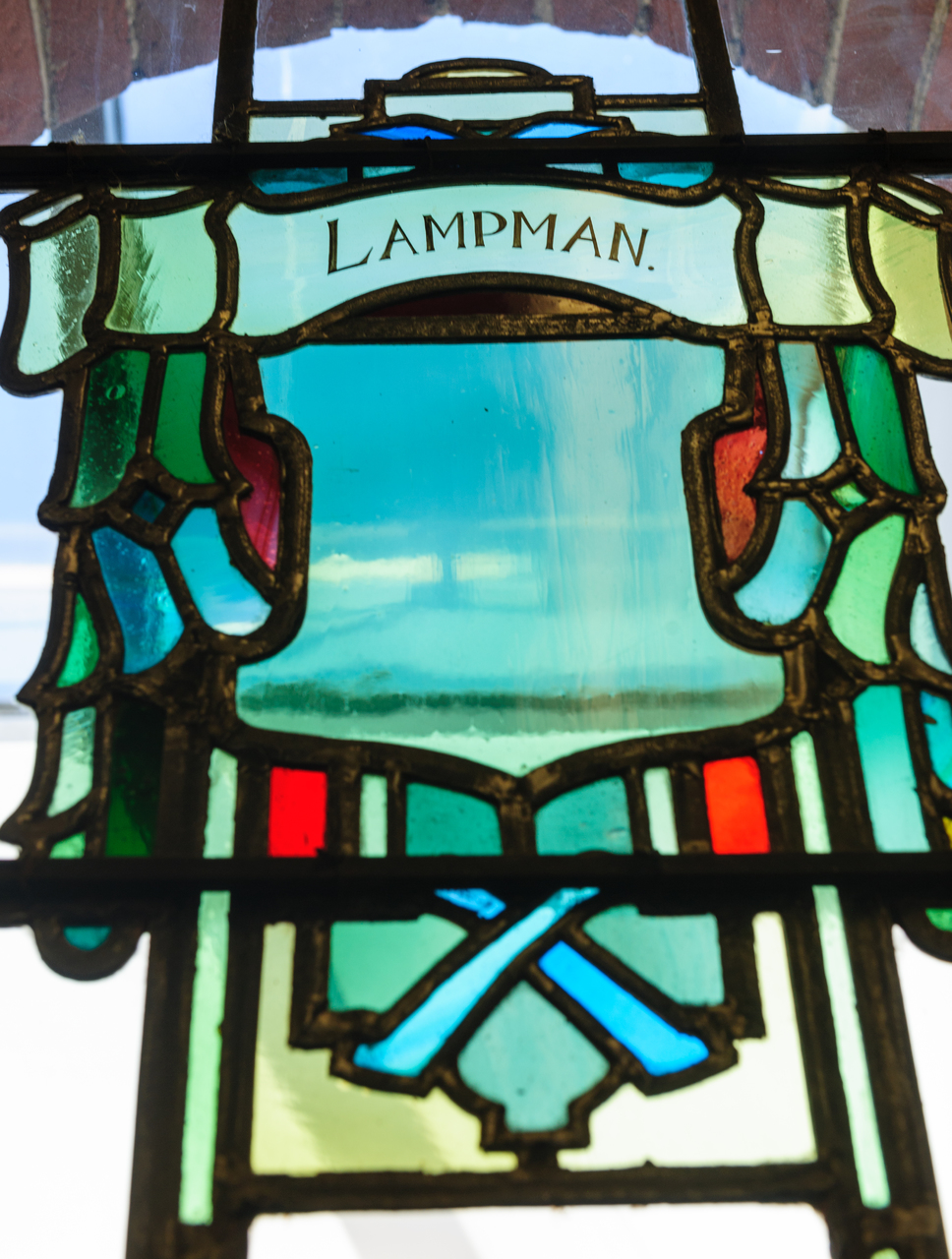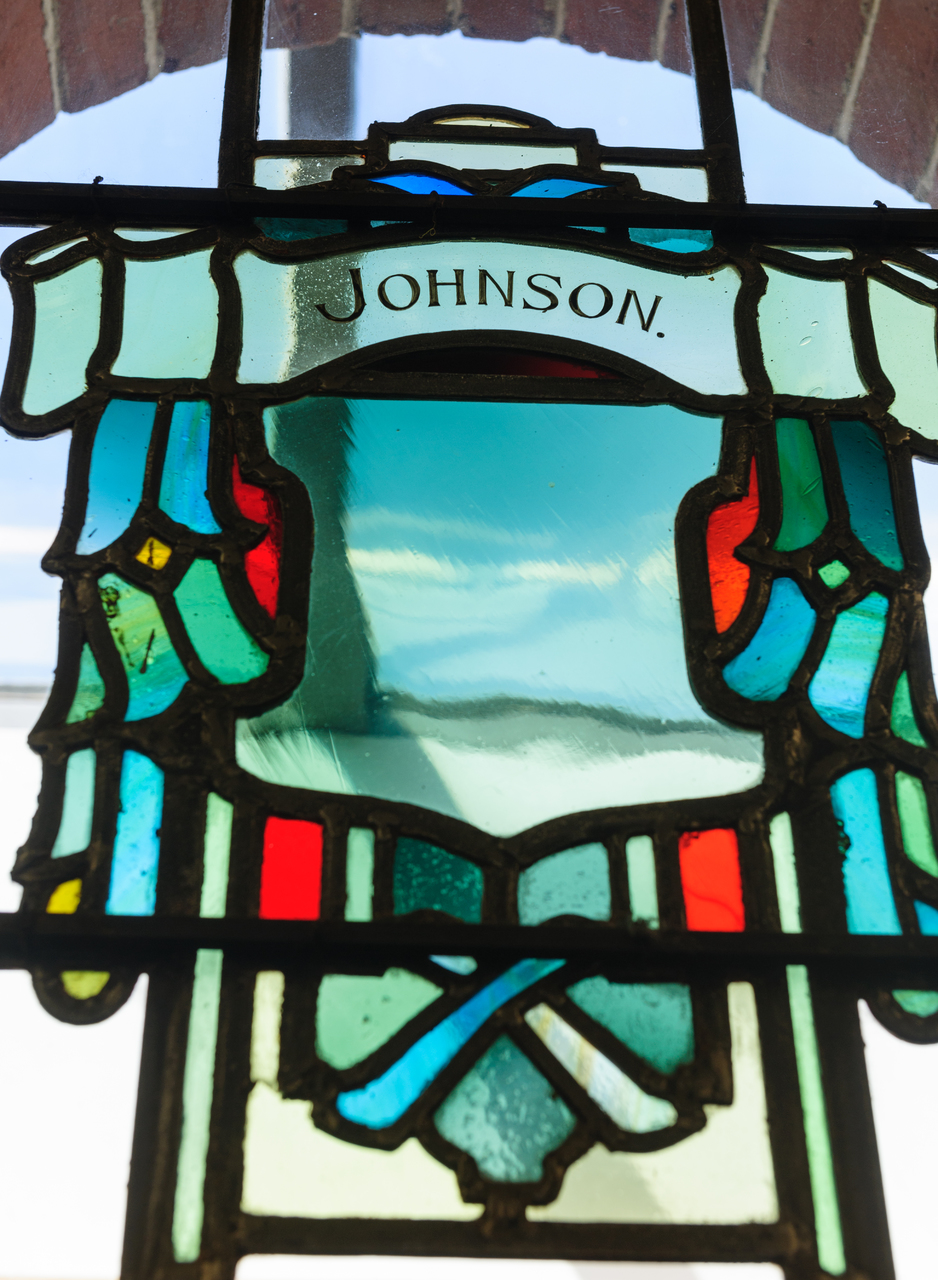North wall
Lord Thomas Babington Macaulay (1800 – 1859)
Whig politician, historian and poet, Macaulay is best known for his popular Lays of Ancient Rome (1842), a series of poems about heroic episodes in Roman history, and his five-volume History of England from the Accession of James II (1849-61).
William Makepeace Thackeray (1811 – 1863)
A satirist and humorist, Thackeray’s reputation rests chiefly on the picaresque The Luck of Barry Lyndon (1844) and the satirical Vanity Fair (1847-48).
Sir Walter Scott (1771 – 1832)
Distinguished for his contribution to Romanticism and the historical novel, Scott works include Lady of the Lake (1810), Rob Roy (1817), Ivanhoe (1819) and The Bride of Lammermoor (1819).
Charles Dickens (1812 – 1870)
Generally considered the greatest English novelist of the Victorian period, Dickens became famous at age 25 with his first novel, The Pickwick Papers (1837). Subsequent works, including Oliver Twist (1839), A Christmas Carol (1843), David Copperfield (1850), Bleak House (1853), Little Dorrit (1857), A Tale of Two Cities (1859) and Great Expectations (1861), cemented his reputation as a master of colorful characterization and as a harsh critic of social evils and corrupt institutions.
William Wordsworth (1770 – 1850)
With Samuel Taylor Coleridge, Wordsworth launched the Romantic age in English literature in their joint publication, Lyrical Ballads (1798). Wordsworth’s greatest work is generally considered to be The Prelude, a semi-autobiographical poem revised and expanded many time.
Thomas Moore (1779 - 1852)
Known is his lifetime as Anacreon Moore, Thomas Moore is considered the national poet of Ireland. Also a singer, a songwriter, an entertainer and a novelist, Moore is best remembered for the lyrics of The Minstrel Boy and The Last Rose of Summer, both written in 1805.
William Shakespeare (1564 – 1616)
English poet, playwright and actor, William Shakespeare is widely regarded as the greatest writer in the English language and the world’s preeminent dramatist. His works include 37 plays, 154 sonnets and four long poems.
John Ruskin (1819 – 1900)
Ruskin was the leading English art critic of the Victorian era. His ideas were highly influential up to the First World War, and are still highly regarded. His disdain of anything machine-made paved the way for the reformist Arts and Crafts movement. His works included Modern Painters (1843-60), The Seven Lamps of Architecture (1849) and The Stones of Venice (1851-53).
Archibald Lampman (1861 – 1899)
An outstanding exponent of Canada’s nature poetry, Lampman had two volumes of verse published during his lifetime, Among the Millet and Other Poems (1888) and Lyrics of Earth (1893), as well as several posthumous works, notably The Poems of Archibald Lampman (1900).
Dr. Samuel Johnson (1709 – 1784)
Regarded as one of the greatest figures of 18th-century life and letters, Samuel Johnson made lasting contributions to English literature as a poet, a playwright, an essayist, a moralist, a literary critic, a biographer, an editor and a lexicographer. His Dictionary of English Language (1755) had a far-reaching effect on modern English.


